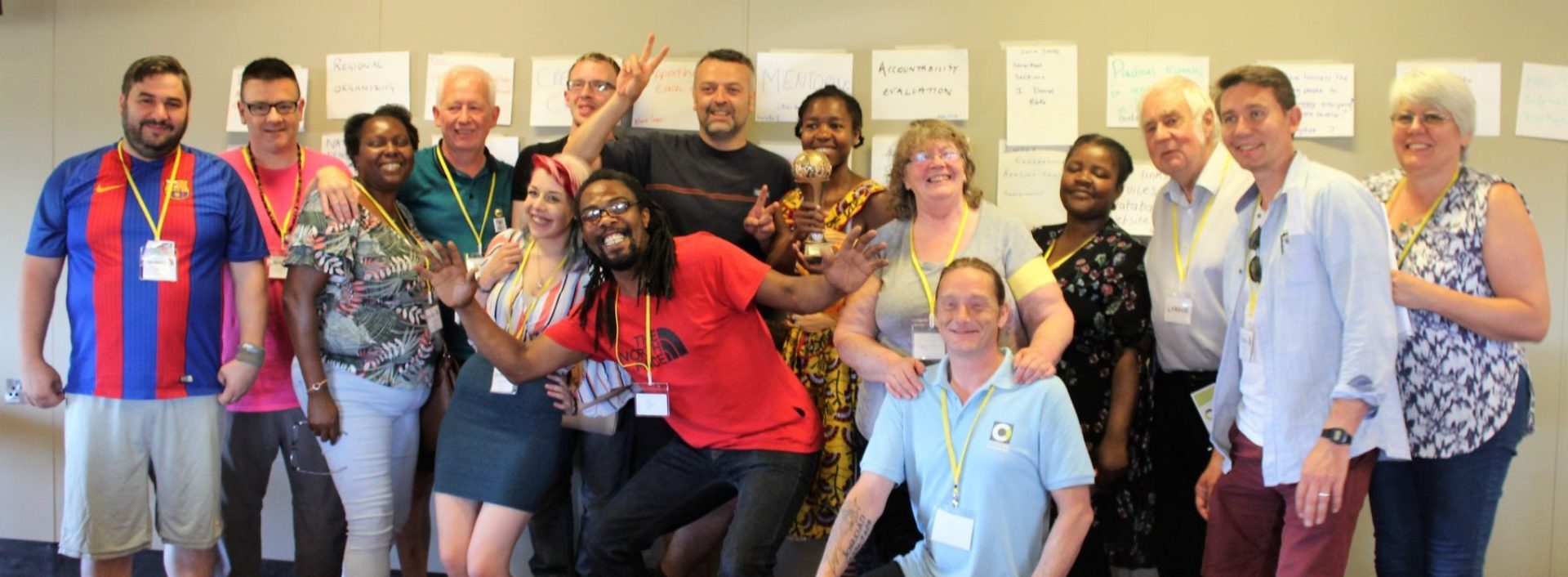Recognising the value of community organising
Posted on 28 Jun 2022 Categories: Blog, Community power, Local initiatives
by Bonnie Hewson

The past five years of working on the place-based funding programme, Empowering Places, has opened my eyes to the benefits of community organising. One of the themes that has run through my time working for Power to Change has been power – who has it, who doesn’t, how to let go of power, and how to hold power with people, not over them. This is a discussion that is very live in the wider world, as well as within the narrower funder ecosystem. I see community organising as a tool that is on the front line of addressing power imbalance and something that can provide the foundations upon which better places, and indeed a better society, can be built – as well as being a key enabler of the emergence of community businesses that truly tackle the needs of local communities.
If you aren’t familiar with the practice, community organising is akin to community development but with a strong focus on participatory methods and power sharing in decisions. It involves a trained community organiser working within a community: through informal conversations community organisers gently recruit local people volunteering for social action that matters to them.
This builds their personal agency and helps them to challenge inequalities of power and draws them together with others into collective action. This approach helps to skill-up volunteers with more in-depth organising skills through learning-by-doing and also builds more collaborative relationships, including between third sector organisations and public bodies, enabling greater insight into the social needs of local people.
A recent report commissioned by Power to Change and Community Organisers looks specifically at the impact of community organising on community businesses acting as hubs of social action in their community, using interviews with seven adopters and their stakeholders. The aim was to try to encapsulate the benefits of community organising, in order to support community anchors to make more informed decisions about how to allocate their available resources to best support their community.
The research highlights the strong social value of community organising and its potential to:
- mobilise people to exercise their own agency through voluntary action on local issues
- enable people to become leaders of their own collective action projects
- augment community cohesion through its relational work
- increase the incomes of low paid workers and low-income households
- promote community businesses and other social enterprise solutions to local people’s needs
- channel people excluded from the labour market into reengagement pathways;
- and generate savings to statutory budgets.
As well as the clear and identifiable benefits that community organising has had on individual’s personal agency and capacity for grassroots leadership, the research also shows the potential for community organising to make a significant contribution to those exploring how to take a place-based approach to their work.
Community organisers develop a strong, long-term bond with the people in the communities in which they work and through trust, solidarity and understanding they “fosters the sense of agency through which those engaged come to understand their own power and to exercise this in relation to the social issues they identify”, (McGinn, 2020).
On the local level community organising supports cohesion within communities, but it also creates ‘bridging’ relations across sector boundaries that connect participants with statutory service providers, third and public sector organisations. This improves the ability of third and public sector bodies to collaborate effectively to tackle the root causes of the challenges that people and communities are facing and better align policy and practice.
Community organising is not a magic bullet for community anchors trying to tackle entrenched local challenges as there are challenges with financing the approach, with many organisations being reliant on short-term grants to sustain their activities. Being a long-term, relational approach reliant on trust, rather than transactional in nature, community organising doesn’t lend itself well to trading models or short-term projects where there is a constant threat of discontinuation.

Despite these challenges the networks of organisations using this approach are growing and its value is being felt across many layers of society, not just within local communities but also in political and social movements. As well as the Community Practioners’ Network run by Community Organisers, there are also New Economy Organisers and Solidarity Economy Organisers networks.
If this approach continues to spread and can find a place in the core work of more community anchors then there is huge potential for power to be reclaimed by the grassroots and the local, and for us to rebuild our society and economy with the wellbeing of people at its heart.
This article was originally published on the Power to Change blog on 10th February 2022.
Posted on 28 Jun 2022 Categories: Blog, Community power, Local initiatives
